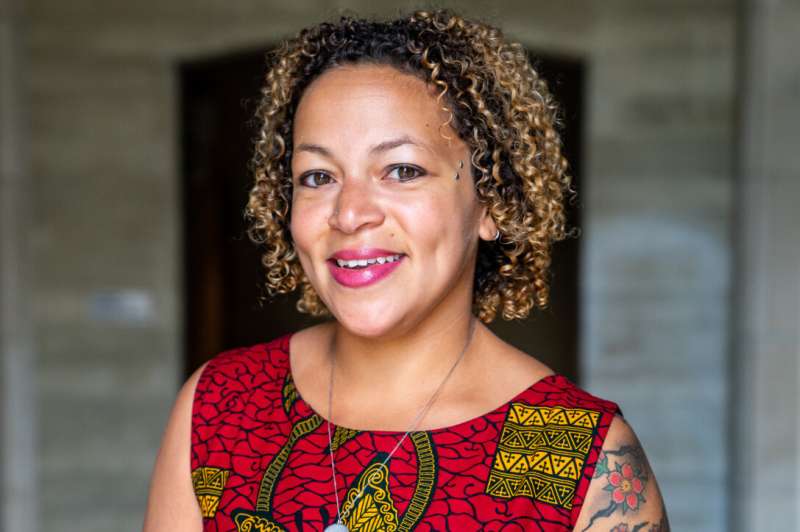The intonation biracial men use changes when they speak about race

In a study of college-educated biracial men, ages 18 to 32, sociolinguist Nicole Holliday found that, when asked about race, this group frequently brought up law enforcement unprompted and discussed the subject using vocal tone more generally associated with white speakers.
People change the way they speak based on who they're talking to and the subject they're discussing.
That's the idea behind a linguistics theory called referee design. Sometimes the effect is amusing, like a study showing an amplified Australian accent when an Australian is in a room with a stuffed kangaroo. But sometimes the effect can be startling, like research Penn sociolinguist Nicole Holliday recently published in the Journal of English Linguistics.
Specifically, Holliday found that when biracial men—in the case of this work, those with one white parent and one Black parent—spoke about race and the police, they used intonation more generally associated with white speakers than African American speakers.
"What's really interesting here is that I was interviewing them about their experiences, about race, how they thought about themselves and society. I never asked about the police, yet they kept telling me these stories," she says. "There was a subtle but noticeable shift to a style more often used by white speakers."
Much of Holliday's research focuses on the ways the voice moves up and down during conversation and which words get stressed when. "In regular conversation, we raise the pitch of our voice to emphasize particular words in a sentence," she says. "The way that happens for Black and white speakers can differ."
For her doctoral dissertation, which she completed in 2016, Holliday wanted to look at this concept more closely. She enrolled 20 college-educated biracial men, ages 18 to 32, from Washington, D.C., and Virginia into a study. They participated in two peer activities, one with a white peer, the other with a Black peer, as well as in a single researcher-led interview that Holliday conducted.
During the hourlong sociolinguistic interview, she asked 22 questions, several of which focused on identity, including "How do you see yourself racially?" and "How do others see you?" When she asked participants what message their parents gave them about race, seven brought up law enforcement unprompted. She started noticing a pattern in how they discussed the subject, too. To verify it, she coded similar identity questions for five of the participants, comparing the intonation the speakers used for each.
Holliday confirmed that she had indeed been hearing subtle linguistic differences when the men spoke about the police. For example, the pitch on a stressed syllable didn't rise and fall as she would have expected it to. More pointedly, "the experience for me as the researcher was, 'Wow, something has changed when they're discussing this.' If you told me to manipulate my voice in these particular ways, I couldn't do it. It's too difficult to do consciously."
The participants were doing what's known as code switching. "Basically, it's commanding multiple ways of speaking, dialects or languages, and knowing which one to use in every single social situation," Holliday says. "People from marginalized and racialized groups experience negative social consequences if they're perceived as using language 'wrong' in a given context."
Holliday hopes that this work—which she plans to continue with biracial women next—raises awareness of this linguistic burden and opens the door to a greater open-mindedness about what constitutes "proper speech." Different races, regions, and age groups may differ in their speech norms, but she argues that one isn't superior to another.
"We ask speakers of marginalized languages to change all the time," she says. "But if we can start to accept that there is just variation because people are different and stop saying that one way of speaking is a problem, it takes the pressure off of marginalized people to always be accommodating."
More information: Nicole Holliday, Intonation and Referee Design Phenomena in the Narrative Speech of Black/Biracial Men, Journal of English Linguistics (2021). DOI: 10.1177/00754242211024722
Provided by University of Pennsylvania




















